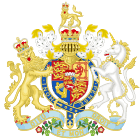John Plunket (Jacobite) facts for kids
| Act of Parliament | |

|
|
| Long title | An Act to inflict Pains and Penalties on John Plunket. |
|---|---|
| Citation | 9 Geo. 1. c. 15 |
| Dates | |
| Royal assent | 27 May 1723 |
John Plunket (1664–1738) was an Irish man who supported the House of Stuart royal family. He was a key person in the Atterbury Plot in the 1720s. This plot aimed to bring the Stuart family back to the throne of Great Britain. Plunket sometimes used the name John Rogers.
Contents
Who Was John Plunket?
John Plunket was born in Dublin, Ireland, in 1664. He grew up as a Roman Catholic. For his education, he was sent to the Jesuits' College in Vienna.
Working for the Jacobites
After the Glorious Revolution in 1688, Plunket spent more than 20 years working for important Jacobites. The Jacobites were people who supported the Stuart family's claim to the British throne. He sometimes worked as a spy and sometimes as a diplomat for King James II. Through this work, he met many important leaders in different European countries. He received many promises of support for the Jacobite cause.
Secret Missions and Diplomacy
The Jacobites felt more hopeful when the Whig political party lost power in Great Britain in 1710. This made the new Tory government stronger. Many people thought that Robert Harley, a key Tory leader, secretly supported the Jacobites. Talks began with France, led by King Louis XIV, in late 1711. These talks were seen as a way to start secret discussions with James Francis Edward Stuart, who was known as "the Pretender" (the person claiming the throne).
Plunket worked to help the Jacobite cause. He tried to show the Tories that the Whigs were making secret plans. In January 1712, Prince Eugene of Savoy visited England. He met with important Whig leaders like Marlborough.
The Forged Letters Incident
In March 1712, Plunket sent two fake letters to Robert Harley. These letters seemed to be from Prince Eugène to Count Zinzendorf, an ambassador. The letters falsely claimed that the Whigs were planning to harm Tory leaders. Harley was not fooled by these letters. However, Prince Eugène became less popular in England. The letters were also used to convince French leaders about the dangers of making peace without considering a powerful group's wishes.
Plunket was disappointed that Harley wasn't convinced. He then took his fake information to other important figures. On April 3, Plunket was questioned. He said his information came from a clerk in Holland. He was told to go to Holland and bring this clerk back.
Later Life and Imprisonment
Plunket went back to Europe and visited Rome. He met with the Pretender there. He returned to England in 1718. In January 1723, while staying in Lambeth, he was accused of being part of Christopher Layer's plot. This plot aimed to take control of the Tower of London.
Plunket was found to have written letters to other Jacobites. In these letters, he asked them to get support from the leader of France. He also promised that many people in England would support their plans. He was also accused of trying to get soldiers in the British Army to join his side.
A special law, called a "bill for inflicting certain pains and penalties upon John Plunket," was discussed in Parliament. When it was brought to the House of Commons on March 28, 1723, Plunket did not defend himself. When the bill went to the House of Lords, he claimed he was not a very important person among the Jacobites. However, his letters showed that this was not true.
John Plunket was then held as a state prisoner in the Tower of London for many years. In July 1738, he had a serious operation for a health problem. The operation was not successful, and Plunket died in August of that year. He was buried in the St Pancras churchyard.
 | Delilah Pierce |
 | Gordon Parks |
 | Augusta Savage |
 | Charles Ethan Porter |

